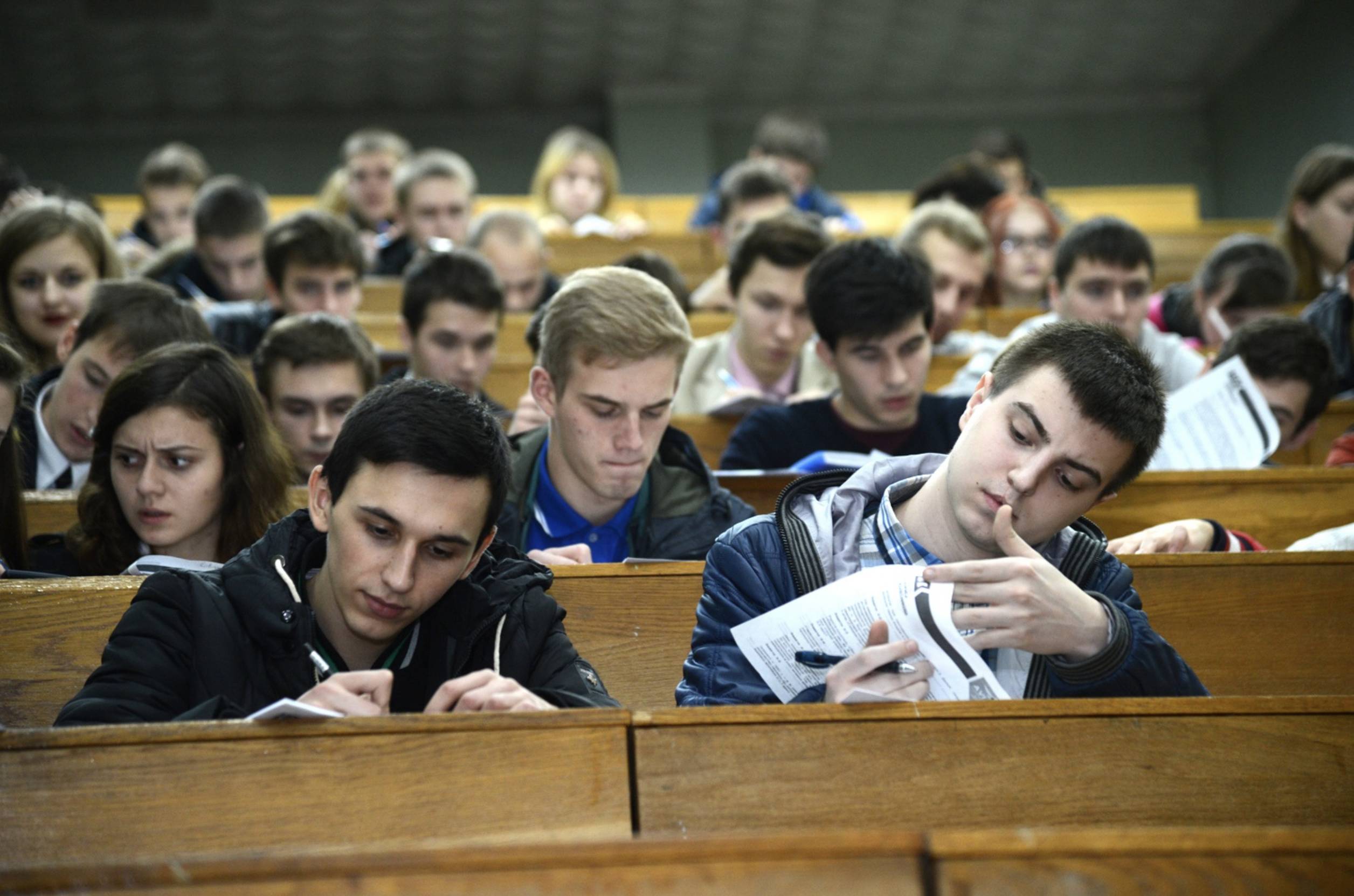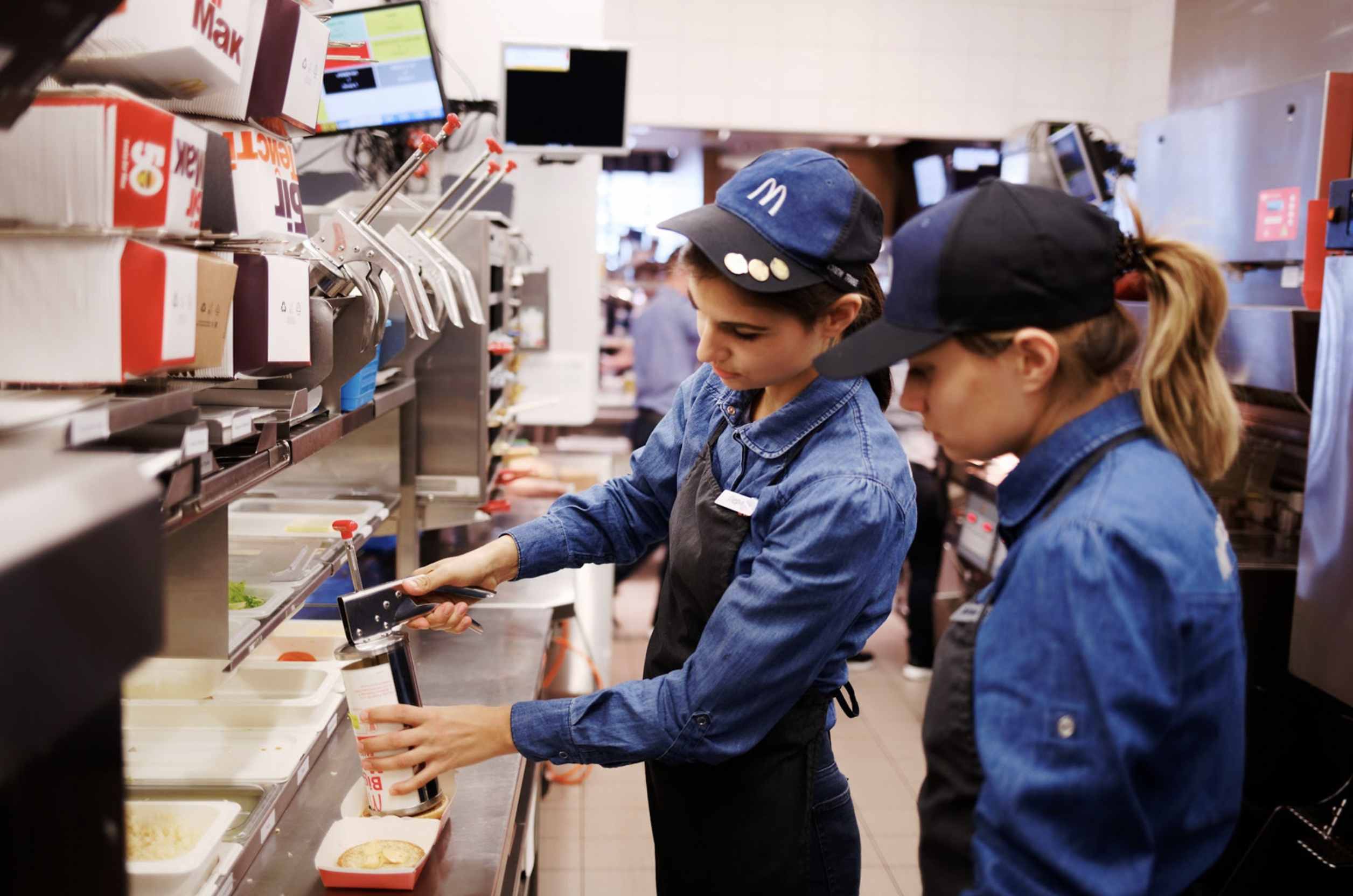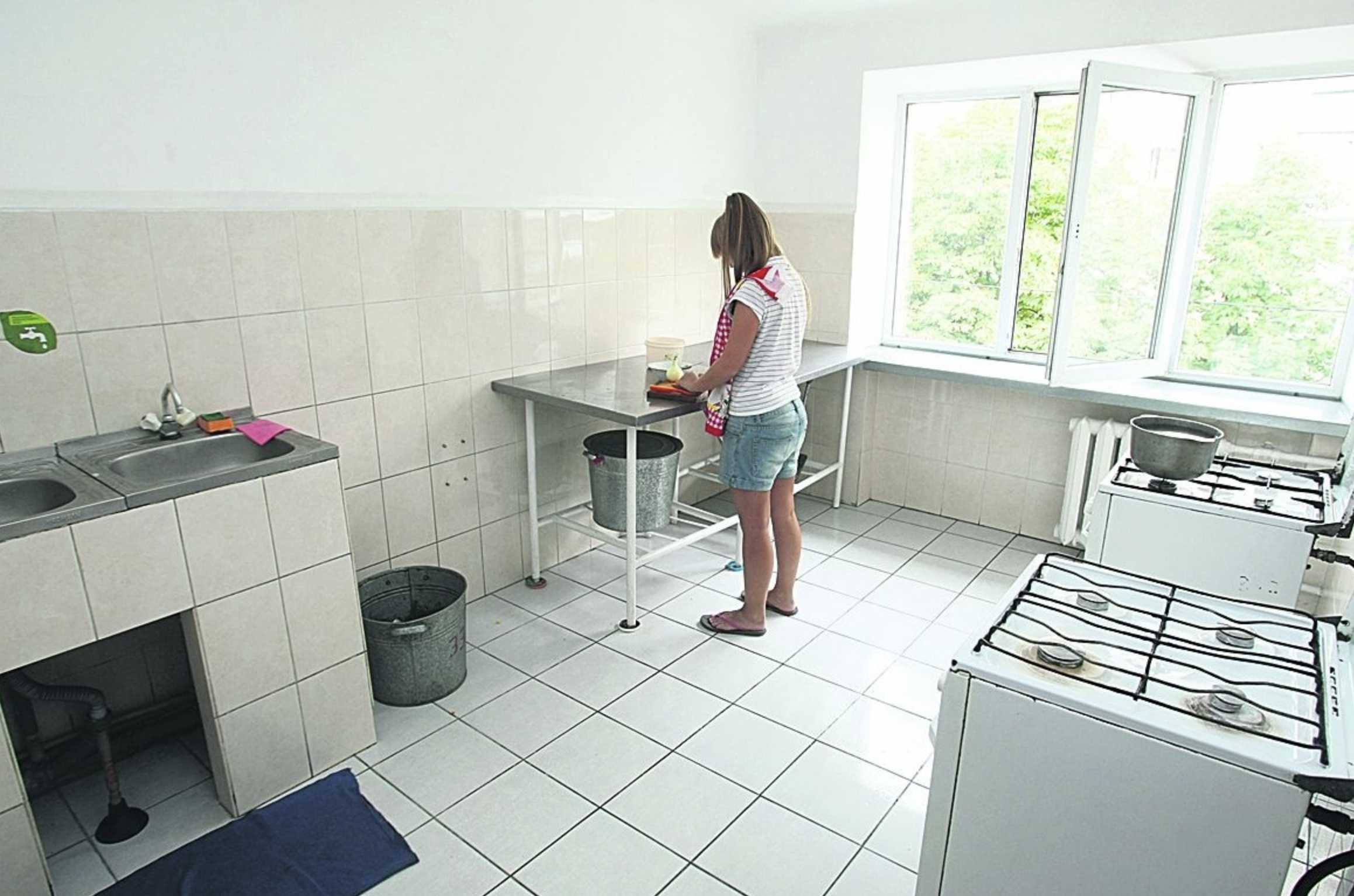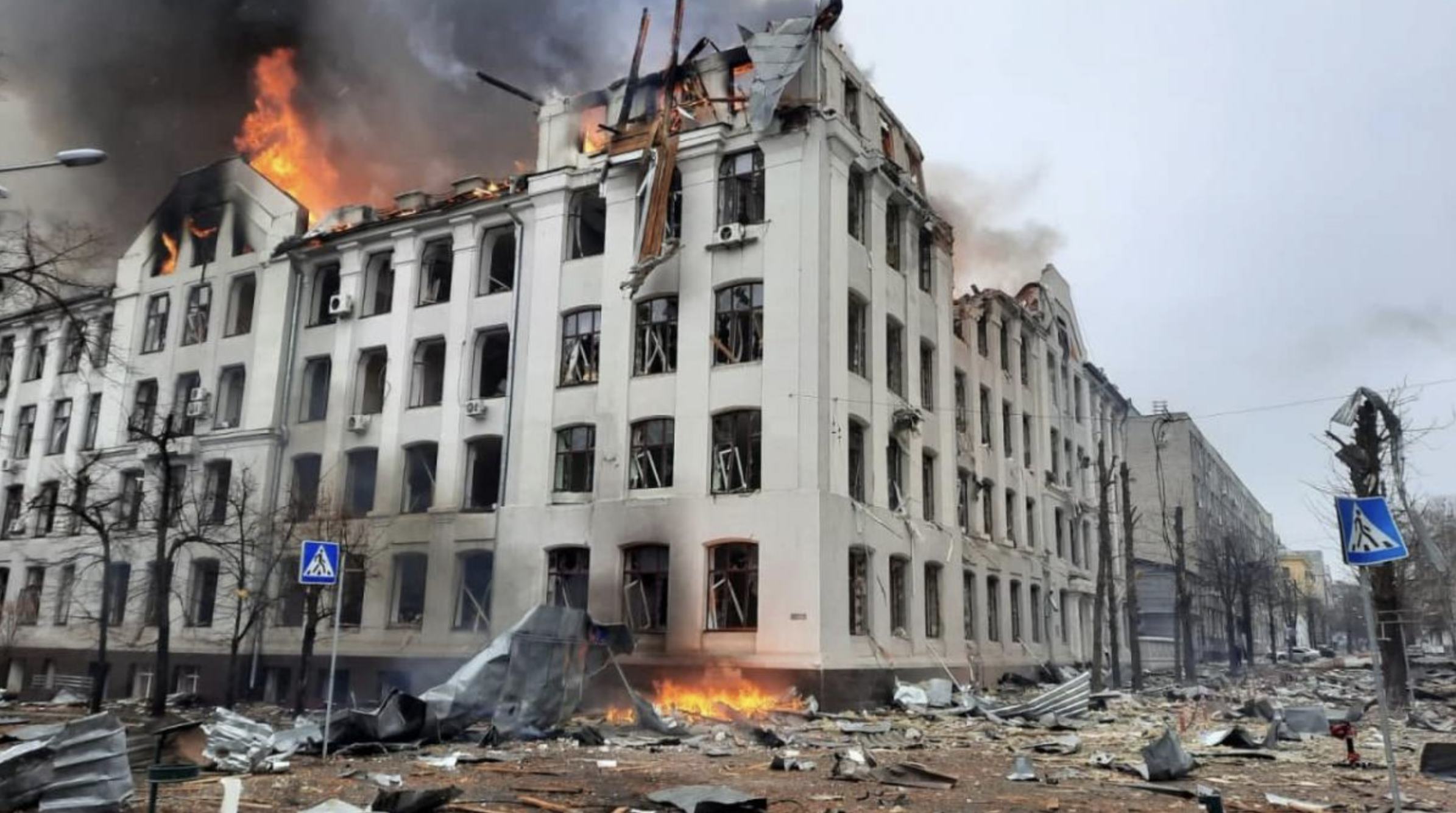In the third year of the full-scale invasion, Ukrainian students are grappling with a stark reality: rather than enhancing social support, the government is scaling back assistance. Many internally displaced persons (IDPs) have seen their payments discontinued, while reforms within the Ministry of Education and Science (MES) pose a threat to higher education accessibility for vulnerable populations. For instance, initiatives within the Ministry are leading to university mergers, resulting in government-subsidized/ budget-paid students losing their spots and the privatization of dormitories and university facilities. Additionally, MES is pushing forward a grant reform that aligns the higher education system with market principles.
In conversations with numerous students, it became evident that they face a myriad of challenges in contemporary conditions. These challenges can be broadly categorized into three intersecting groups: economic difficulties, gender disparities, and the ongoing Russian military aggression. The lack of adequate responses from both the government and university administrations not only exacerbates existing problems but also gives rise to new ones.
Between university and work
The economic challenges that students face are prominently reflected in the necessity for many to balance their studies with full-time employment. While this issue isn't new, the situation has been exacerbated amid the war and concomitant economic crisis. It hinders full engagement in education, curtails developmental opportunities, and contributes to physical and mental fatigue. Numerous interviewees cited burnout at their workplaces due to excessive workloads.
Working while studying can significantly impact one’s future career prospects, particularly in securing employment relevant to their field of study. Fragmented knowledge acquired through this divided focus often poses barriers to entry into the job market. According to the 2022 Report on Monitoring the Employment of Graduates from Higher and Vocational Pre-Higher Education Institutions, only 36.27% of graduates from bachelor’s programs found employment[1].

Students in an auditorium. Illustrative photo: BBC
Juggling work and studies at the university is widely accepted as commonplace: students highlight the challenge of scheduling conflicts, which may jeopardize their academic standing. In other words, the primary concern among students isn’t the necessity of employment itself (bearing in mind that many works full-time), but rather the logistical hurdles of balancing work commitments with their studies.
For instance, here are the sentiments expressed by one of the students interviewed:
“The schedule we have, studying until 2:00 p.m. almost every day, makes it impossible to juggle with work. If it’s a part-time job, then I won’t be able to attend classes until 2:00 p.m. I believe the administration attempted to provide us with a convenient schedule, but… it didn’t quite pan out. Personally, I’d prefer having the first classes start at 8:00 a.m., even if it means waking up at 5:30 a.m., rather than being stuck until 2:00 p.m. Moreover, on some days, we have classes straight from 8:00 a.m. to 2:00 p.m. I can already picture this nightmare.”
Students find themselves compelled to work due to insufficient state support in the form of scholarships, leaving little room to prioritize their studies, creativity, and participation in public life. Instead, they are burdened with concerns about mere survival. Another factor contributing to this reality is the shortage of available places in university dormitories. Some educational institutions lack dormitories altogether, while others have limited capacity. Consequently, students are forced to seek housing in the rental market, where costs, especially in major cities, have been high relative to average incomes, and have further escalated with the onset of full-scale war in certain areas.
Working students, more often than their peers, encounter labor rights violations and face uncertainty regarding their status in the job market. Lacking experience, they frequently find themselves in short-term, informally employed positions. In some cases, their employment arrangements are misrepresented by employers as “self-employment”, compelling them to register as individual entrepreneurs. This not only deprives students of adequate social protection but also complicates their ability to formally assert their labor rights if the need arises. Additionally, newly introduced legislation permitting zero-hours contracts—agreements without guaranteed working hours—may exacerbate the precarious situation faced by young people in the labor market.

Students work at McDonalds. Illustrative photo from open sources
The situation is particularly challenging for IDPs, who not only grapple with housing shortages but often lack material support from family members. Many IDPs have parents who remain in occupied territories, and those who have relocated have not yet established stable living arrangements. Consequently, these families have limited resources, leaving young people to fend for themselves. IDP students, in particular, find themselves highly vulnerable to exploitation by employers, as they may feel compelled to accept any working conditions simply to meet their basic needs.
Gender aspect: prejudice, harassment, housework
The survey results reveal that gender bias is prevalent among certain teachers and peers across all fields of study, with particularly pronounced instances in technical and socio-economic disciplines. As one student described:
“Some of the guys in our group hold the belief that women don’t belong in politics, suggesting they’re only there due to gender quotas.”
Apart from biases and stereotypes in certain academic disciplines, there’s a pressing issue of violence and harassment within universities, often silenced at all levels, from the victim to the institution’s administration. Typically, harassment is either normalized or ignored by teachers, while university management may opt to remain silent to avoid “tarnishing the institution’s reputation.”
Furthermore, a number of female students mentioned that there is differential treatment between girls and boys by both parents and dormitory staff regarding household chores. Similar to broader societal norms, female students are frequently tasked with domestic responsibilities such as cleaning, cooking, and caregiving alongside their academic and professional pursuits. This increased workload can detrimentally impact their academic performance, as well as their physical and emotional well-being.

A female student prepares lunch. Illustrative photo from open sources
War’s consequences: lack of security and understanding
Russian military aggression has profoundly impacted the lives of all students, particularly those residing in frontline and occupied territories. Unfortunately, university administrations and faculty members fail to ensure that these individuals can continue their education within Ukraine. In some cases, distance learning and passing exams are not adequately organized, leading to the exclusion of students who cannot physically attend classes.
Even when universities offer students from frontline and occupied areas the option of remote education, certain issues can only be resolved on-site. I heard accounts that students faced expulsion threats unless they provided a “real” signature on individual study plans or personally submitted enrollment certificates. Resolving such matters often relies solely on the “goodwill” of administrators and professors through individual agreements, with no guarantee of graduation for those forced to remain in occupied territories.
Since the outbreak of full-scale war, many students have been compelled to take academic leave due to displacement, increased work commitments, psychological challenges, or military service. Upon their return from leave, they discover that they are no longer eligible for subsidized education, despite previous assurances from MES regarding guaranteed opportunities for re-enrollment.
In the aftermath of the COVID-19 pandemic, the ongoing war has necessitated prolonged distance learning in numerous educational institutions. This presents challenges and frequently renders practical training unfeasible, occasionally resulting in a waning enthusiasm for learning. However, traditional full-time study during wartime poses its own set of difficulties, particularly in environments where university shelters and dormitories suffer from inadequate conditions, capacity limitations, and security concerns. Students hailing from occupied, recently liberated, and frontline areas recount the harrowing experiences of navigating air raids in Kyiv when attending classes.

The Faculty of Sociology building at V.N. Karazin Kharkiv National University. Photo: State Emergency Service of Ukraine
While there may not be a definitive solution to these challenges amidst ongoing Russian aggression, various options exist for public consideration, each with its own advantages and disadvantages. One potential solution is to adopt a blended learning approach, allowing students to choose between attending classes on campus or participating remotely. However, not all universities have the necessary resources to facilitate simultaneous in-person and online participation, a challenge exacerbated by the ongoing issue of distance learning stemming from the pandemic. Another option is to establish agreements with foreign universities, enabling students abroad to temporarily enroll in relevant programs and have their earned educational credits recognized as equivalent. Though these options may not be perfect, the pressing issues at hand demand discussion and action toward resolution.
Education reform
From the upcoming academic year, the challenges faced by the students could intensify with the initiation of another education reform by the Ministry of Education and Science. This reform proposes to eliminate the legally guaranteed quota of budgetary slots and the criteria for obtaining a social scholarship. Instead, the government will have the authority to arbitrarily set the standards for state-funded education and the criteria for financial assistance. Under the proposed legislation, only a certain percentage of students will be eligible for grants, covering only a portion of their educational expenses.
This reform might lead to a reduction in the number of students enrolled on a budgetary basis. Additionally, those who do manage to obtain education without payment will be obliged to work for a minimum of three years under a state-offered contract post-graduation. However, they won’t have the freedom to choose their employer, terms of employment, wages, or even the location of their residence during this period. If recent graduates resign or are deemed by their employer to be “underperforming”, they will be required to reimburse the government for the tuition and academic scholarships they received.
Such a reform infringes upon the constitutional rights of Ukrainian individuals to receive free education and engage in voluntary employment. If enacted, this draft law could limit access to higher education for vulnerable groups, including youth from economically disadvantaged backgrounds and IDPs. It would make it more challenging for them to leverage education as a means of upward social mobility and improving their socio-economic circumstances. Consequently, these conditions are likely to spur increased student emigration in pursuit of better quality and more affordable education abroad.
***
Regrettably, rather than alleviating the challenges faced by Ukrainian students amidst Russian aggression, the government’s actions seem to exacerbate the situation. Under the pretext of reform, initiatives are being introduced that steer higher education towards market-driven principles, consequently exacerbating social and economic disparities. Meanwhile, there’s a noticeable absence of adequate measures from both authorities and university administrations to mitigate the war’s adverse effects on educational conditions: there are no assurances of remote education for students from occupied territories, and insufficient efforts are being made to prepare the bomb shelters of the university facilities and dormitories for in-person learning.
The economic hardships experienced by Ukrainian students cannot be resolved without addressing broader labor market issues. To enable students to focus on their studies and personal growth, it’s imperative to ensure a decent standard of living and uphold everyone’s labor rights. What’s needed are systemic reforms and a focus on addressing the needs of all students, irrespective of gender, location, social status, or economic standing. The government’s neoliberal and anti-labor policies must be halted, as they only serve to deepen societal inequalities across all dimensions. Furthermore, it’s crucial to recognize that these policies disproportionately impact vulnerable groups, including women, youth from impoverished backgrounds, and those most affected by the war.
Footnotes
- ^ (2024) Report on monitoring the employment of graduates of institutions of higher and professional pre-higher education. [Review of Report on monitoring the employment of graduates of institutions of higher and professional pre-higher education]. In Ministry of Education and Science of Ukraine (pp. 1–13). Ministry of Education and Science of Ukraine. https://mon.gov.ua/ua/news/trayektoriyi-karyeri-vipusknikiv-zvo-i-zfpo-mon-prezentuye-zvit-iz-monitoringu-pracevlashtuvannya-vipusknikiv-byudzhetnikiv.


